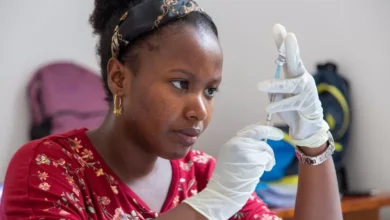Why protecting the heart and kidneys is vital in managing type 2 diabetes

Is diabetes a more complex puzzle than we realize? While many people associate type 2 diabetes (T2D) solely with its connection to blood sugar, the reality is not as simple. In recent years, significant progress in understanding the disease has been made, and one thing is clear – we must look beyond blood sugar, extending our focus to the heart and kidneys. In this article, Dr. Mohamed Meshref, Medical Director for the India, Middle East, and Turkey (IMETA) Region at Boehringer Ingelheim, explores the hidden complexities of T2D and sheds light on the often-overlooked consequences it can have on our health.

The cardiovascular, renal, and metabolic systems are interconnected
In the Middle East and North Africa (MENA) region alone, around 73 million adults are living with diabetes, and this number is predicted to increase by 86 percent to 136 million by 2045. With this projection in mind, it is crucial to understand that there is broad evidence of a close interconnection between kidney and heart disease, and the term cardiorenal syndrome (CRS) has been defined to highlight the bidirectionality of heart-kidney interplay, with dysfunction of one organ leading to dysfunction of the other. We also know that the coexistence of type 2 diabetes, chronic cardiovascular disease, and chronic kidney disease has remarkable epidemiological, pathophysiologic, and prognostic implications. Today, the mechanisms of hyperglycemia-induced damage to the cardio-renal system are well validated, as are those that tie cardiac and renal disease together. In fact, studies have shown that people with diabetes not only have an elevated risk of developing heart failure but also, around 1 in 3 adults with diabetes grapple with chronic kidney disease.
Embracing a holistic approach to type 2 diabetes management
In view of our improved understanding of the intricate connection between the cardiovascular, renal, and metabolic systems, there is a need to adopt a holistic and collaborative approach to type 2 diabetes management. As endocrinologists, nephrologists, cardiologists, and primary care physicians become increasingly specialized within their own areas of expertise, embracing a mindset shift to recognize the interconnectivity of cardio-renal-metabolic diseases and treat them accordingly is paramount.

Empowering patients and championing better health outcomes
Beyond attending regular check-ups, it is important that type 2 diabetes patients take the time to have open conversations with their doctors and ask them how they can protect their heart and kidneys. Patients must also be aware that there are tests available to check their organ function. For example, kidneys can be checked through two important tests: a urine test known as urine albumin-creatinine ratio (uACR); as well as a blood test referred to as estimated glomerular filtration rate (eGFR). Moreover, blood tests such as BNP or NT-proBNP are good indicators of heart failure. It is also crucial for patients to understand that adopting a healthy lifestyle can make a difference. This includes prioritizing healthy eating, committing to a regular exercise routine, and learning ways to manage stress. If patients have been prescribed medication, they need to comply with their treatment plan for better health outcomes.
Protecting the heart and kidneys is a vital aspect of managing T2D. As the prevalence of the disease grows in our region, the medical community bears a profound responsibility to advocate for greater awareness on the importance of early diagnosis and on the interconnectivity of cardio-renal-metabolic conditions to help enhance the health of our communities for generations to come.











